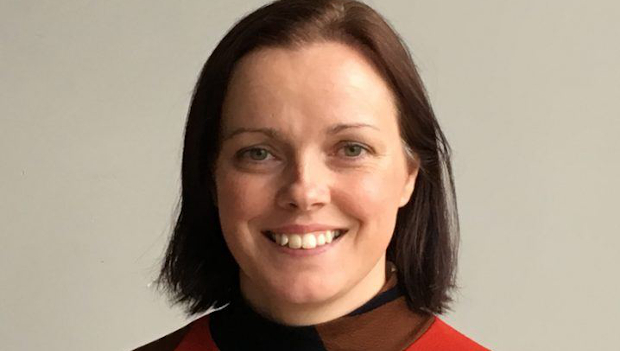
Focus on research: Dr Jennifer Mahony, APC Microbiome Ireland
Dr Jennifer Mahony is a research fellow and starting researcher at APC Microbiome, the Science Foundation Ireland-backed centre for research into intestinal microbiota. In this interview she talks about the link between a healthy gut and a healthy mind and her experience with the Bill & Melinda Gates Foundation.
APC Microbiome Ireland has been around for 15 years but not many people outside the sciences and nutrition would be familiar with it. How would you describe what the centre does?
APC Microbiome Ireland aims to understand the links between the bacteria that naturally live in our gastrointestinal tract and how they influence our health. This could lead to the development of methods to treat gastrointestinal (GI) conditions such as inflammatory conditions of the gut and infections of the GI.
Where possible, we partner with industry so that the work we do answers current problems or needs and is beneficial to society.
We partner with Irish and international pharmaceutical and food companies as well as healthcare facilities of all sizes thus sharing our expertise globally.
Your own work has looked at the interactions of bacteria in dairy products like cheeses and yoghurts and viruses. How would you characterise this relationship and why should we care?
Starter bacteria that are used in cheese- and yoghurt- making are harmless to humans, and perhaps may even be beneficial in some cases. These bacteria convert the milk to the fermented products that we recognise and they give characteristic flavours and textures to the final products. If these bacteria become infected by bacterial viruses, the production cycle may be affected negatively and may cause a change in the flavour, aroma or texture of the product.
While these viruses have no negative effect on human health, they are a considerable problem in dairy fermentations.
Ireland is very reliant on our dairy exports (approx. 30% of our national exports are dairy products) and our agrifood industry is one of the major employers in Ireland.
In order to maintain competitiveness, we need to ensure that the production of fermented foods is consistent. To achieve this, we need to understand how these bacteria are infected by the viruses so that we can reduce the risk of infection in the food industry.
We advise our dairy industry partners on best practice in food production and on strategies to limit the risk of infection, which has been very successful to date.
What foods would you recommend to anyone looking to cultivate a healthy microbiome?
A balanced and varied diet is always the best advice, but perhaps with emphasis on plant-derived foods including fruit and vegetables.
The key is to incorporate variety in the diet so that the body receives a broad range of nutrients and complex sugars to enhance the growth of beneficial bacteria in the gut.
Also, there are a number of fermented so-called ‘super foods’ on the market now that may further enhance our gut microbiota composition including kefir, kombucha and sauerkraut, which are a great way of diversifying and supplementing the diet.
APC Microbiome puts particular emphasis on its outreach effort. Do you think such efforts have value to researchers?
Interacting with the public is essential to our activities for a variety of reasons.
Firstly, as a scientist, it is important that we pass on to the next generation that science is fun and exciting so that Ireland continues to be very successful in producing excellent research and researchers.
Secondly, it is of value to know the concerns and interests of the public so that our research continues to be highly relevant.
Thirdly it makes us, as scientists, think about how our research could be used and how we can transform the food, pharma or healthcare industries with our expertise, which makes the work even more rewarding.
In 2016, you secured funding from the Bill & Melinda Gates Foundation as part of its Grand Challenges Explorations initiative. How would you describe the experience?
This was a fantastic opportunity to investigate the positive applications of bacterial viruses to fight infections.
The recent and ongoing antibiotic-resistance crisis has heightened our awareness that we need to find alternative solutions to traditional antibiotic therapies.
We isolated and tested the effectiveness of a number of bacterial viruses that can kill E. coli and Shigella, which are associated with gut infections.
In the developed world, antibiotics have been used for decades to treat such infections rapidly but in developing countries, the water quality and sanitary conditions may create the perfect conditions for the growth of such illness-causing bacteria and antibiotic therapies may not be readily available.
The lack of suitable treatments makes these infections potentially lethal, particularly to infants. Therefore, alternative treatments are required and bacterial viruses, or their encoded proteins, have the potential to be the next generation of antimicrobials to benefit all in society although much work remains to be done to bring this to realisation.
The challenges of working with partners in developing countries also highlights that we have still a long way to go in order to help deliver potentially life-saving treatments. This may require political links or partnerships between universities and/or research centres to be established to facilitate research efforts to make such therapies a reality in the future.







Subscribers 0
Fans 0
Followers 0
Followers